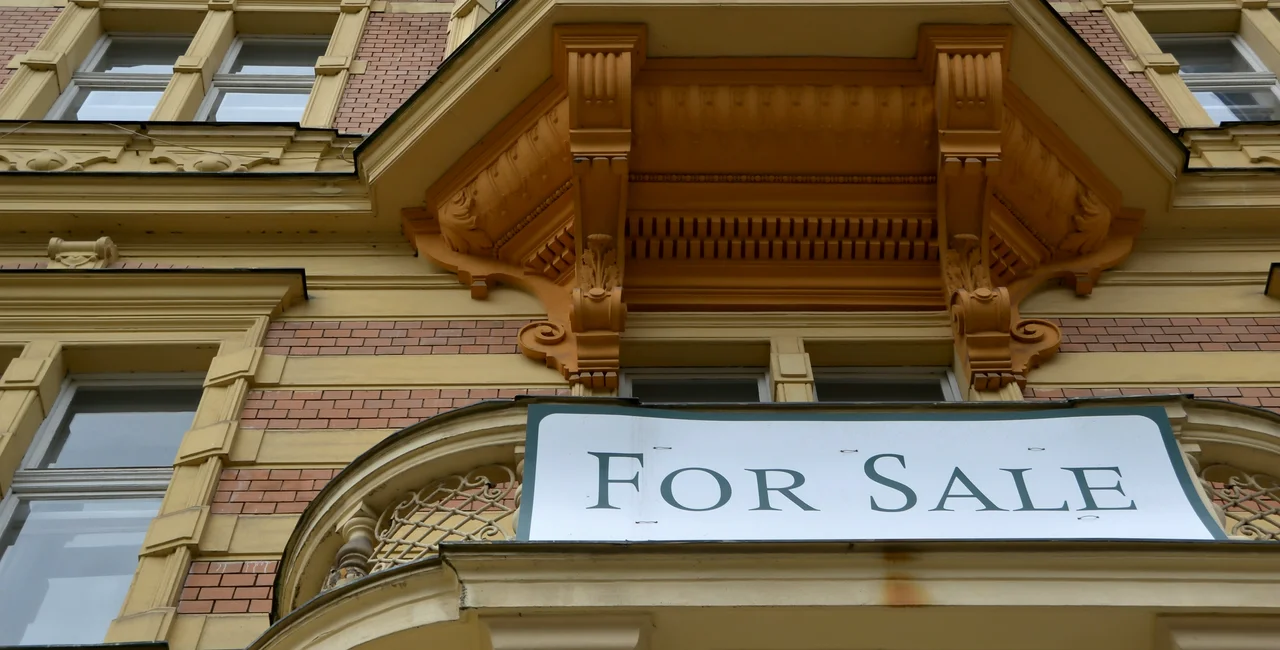Selling your flat or home in the Czech Republic can be surprisingly complex and time-consuming. And if you're not well versed in property laws, you can end up making a number of mistakes when you try to go at it on your own.
While most people will eventually hire a lawyer or a real estate agent to help them handle the final paperwork, there are some things you can do on your own that won't just save you time and money but also ensure a smooth-sailing transaction that's complete as quickly as possible.
The experts at Dostupný advokát (Czech for “Attorney Available”), which comprises the only online legal platform in the country, have put together a list of the most crucial points to help you sell a property and avoid costly mistakes.
Check your documents
Always start with your title number and title deed (usually the Contract of Purchase), where most of the information you need can be found.
- Go over all the contract drafts and make sure they don’t contain any errors. Normally you will sign several contracts, including the Contract of Reservation, the Contract of Purchase, and the Custody Contract.
- Pay extra attention to the payment conditions and the purchase price. If you notice any errors, these need to be corrected before you sign anything.
- Once the Contract of Purchase has been signed, apply for the transfer of registered title at the Land Register.
- Hand over the property according to the protocol.
- Pay any income tax owed.
Draft the 'Contract of Reservation' and the 'Contract of Purchase'
When selling a flat, flawless contracts are crucial. There’s a lot of paperwork involved in the sale of a property and these contracts are interconnected which is why it's crucial that all details match and there are no mistakes that can cause legal issues down the road.
If you’re managing the sale completely on your own, you should at least have the sales contracts drafted by a lawyer. Downloading contract templates off the internet can cause a lot of issues, as they will be general templates that might not apply to your particular property.
The first contract to be signed is usually the Contract of Reservation, which binds the seller and an interested buyer to a Contract of Purchase later on. This contract is important because if one of the sides breaks the contract at any time it entitles the other side to a fine specified within the contract to compensate for their expenses.
The Contract of Reservation doesn’t specify particular conditions of a sale, but at this point you should know and incorporate into it the following:
- the parties involved
- the object of purchase (the flat) including its share of the commonly owned parts of the building
- the purchase price of the property and its due date
- the date of signing the Contract of Purchase and the date of handing over the property
- the type of financing for the flat purchase
- limiting the ownership rights and eventually the conditions of their transfer to the buyer
- the seller’s and buyer’s obligations
- terms dealing with the violation of the Contract of Reservation
- the amount of the reservation deposit
- validity and force of the Contract of Reservation
Unless any momentous circumstances emerge that prevent the purchase from taking place, the Contract of Reservation is followed by the Contract of Purchase.
This should again contain all information about both parties and the property itself. It should also include an additional clause specifying the requisites of handing over the flat, sometimes called the handing protocol.
Set up the 'Purchase Money Custody' for safekeeping
When it comes to the sale of a property, this is perhaps one of the most important steps. During this process, the price of the property is deposited for safekeeping before the ownership rights are transferred. This is to prevent the buyer from refusing to pay for the flat after it’s already been transferred to them at the land register.
What are your safekeeping options?
1. Custody with an attorney. The terms for this process are strictly regulated by law. A separate bank account is created for each custody and in addition, an entry into the Electronic Custody Book is made with the Czech Bar Association. A benefit of this option is that the same attorney drafting your contracts can also handle custody, making the whole transaction faster and more flexible.
2. Notary custody. Also well regulated by law, except that the notary custody tends to be more expensive and less flexible. The safekeeping fee is usually based on the rates specified by law, to which the notary will add 21% VAT in most cases.
3. Bank custody. Most banks don’t provide this service unless you’ll taking a mortgage loan from them, so you’ll probably need to negotiate that separately with the attorney or notary. Also, banks use standardized contract templates that can’t be tailored to your needs and might not correspond with the situation at hand.
Register the property
The following step is registering the real estate at the land register. Don’t underestimate this step, as the register clerks are usually very thorough and mistakes can delay the process significantly.
If the application for registering property contains any errors, it will most likely be rejected and you’ll have to amend it and reapply. That will cost you valuable time as the application takes at least 20 days (25 on average) to handle. Also, bear in mind that there is an administration fee of CZK 2,000 per application.
If the application is in order, the property is registered with the new owner, legally bringing the selling process to a conclusion. At this point, the money kept safe in the custody of the attorney can be released and transferred to the seller’s bank account.
Determine taxes to be paid
Once you’ve sold a flat or house, you may have to pay income tax. The amount depends on how much you bought your flat for and how much you got for it during the sale. Simply put, you are only required to pay income tax if you sold your flat for more money than you paid for it.
If you’re not a citizen of the Czech Republic but live in the country for at least 183 days out of the year, you automatically become a tax resident. But even non-residents must pay tax on income received in the Czech Republic. The particular taxing conditions are regulated by law, which may allow tax exemption for property sales as long as certain criteria are met. An accountant or lawyer can help you figure out your tax obligations.
Additional reading on Dostupný advokát:
This article was written in association with Dostupný advokát. To read more about our partner content policies see here.












 Reading time: 5 minutes
Reading time: 5 minutes 





















